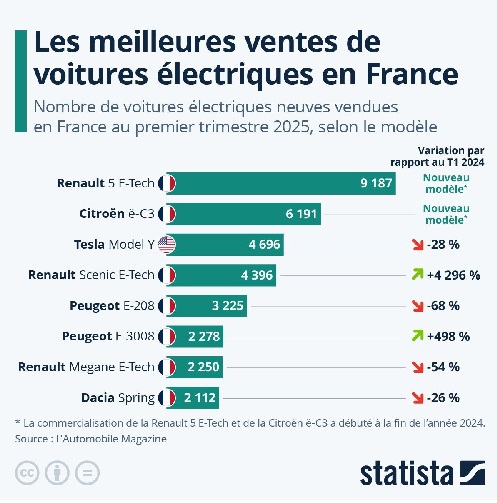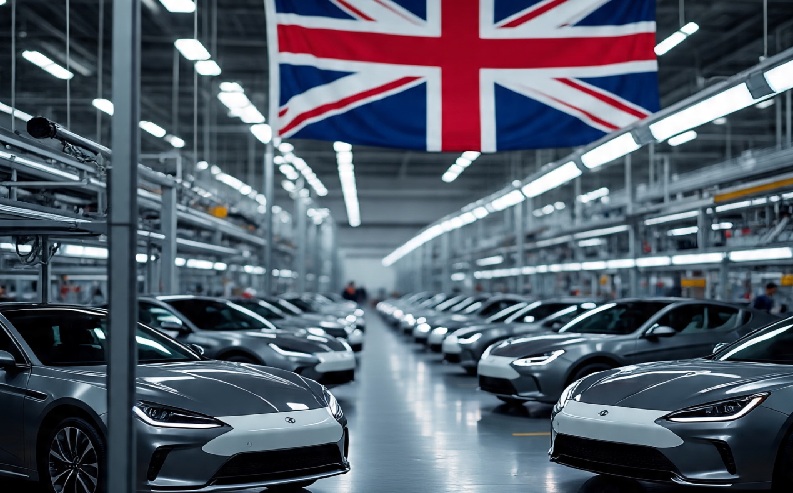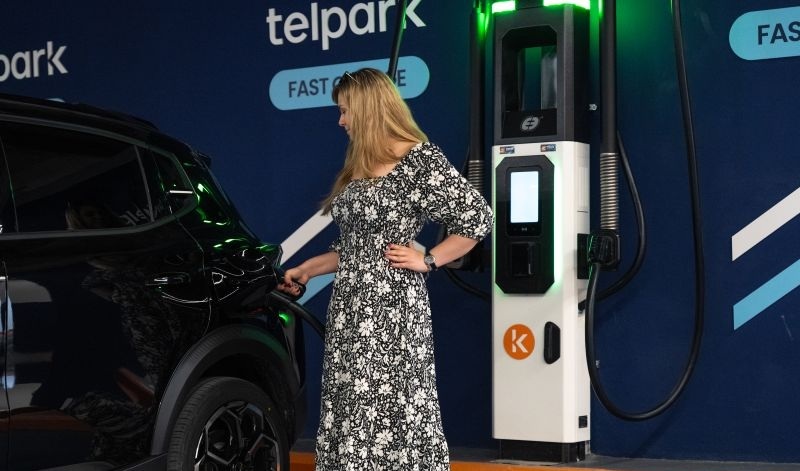The French electric vehicle (EV) market is undergoing a historic shift. For the first time since Tesla’s breakthrough in Europe, two domestic models have surpassed the Model Y in registration volumes during the first four months of 2025.
The newly launched Renault R5 E-Tech and Citroën ë-C3, both manufactured in France, have claimed the top two positions in the sales rankings, displacing the US automaker that had long dominated the segment.

This turning point, confirmed by recent registration data and analysed by Marcos Fortes, a specialist in e-mobility, reflects a wider transformation in consumer preferences and industry dynamics.
“French consumers are beginning to prioritise homegrown products not just out of patriotism, but for economic and practical reasons,” he says.
Key Drivers Behind the Shift: Why Tesla Is Falling Behind
This change in leadership is far from coincidental. It stems from a confluence of market forces reshaping the French EV landscape:
A Taste for “Made in France”
Domestic manufacturing is increasingly favoured, not just for symbolic value but also for its logistical advantages and fiscal incentives. Cities such as Lyon and Toulouse have seen over 30% growth in demand for French-assembled vehicles.
Government Incentives
The French Government is offering grants of up to €6,000 for electric vehicle purchases under €47,000. Both the Renault R5 E-Tech and the Citroën ë-C3 fall within this bracket, giving them a strong edge in affordability over the Tesla Model Y.
Shifting Public Perception
The public image of Elon Musk, shaped by his political and social statements, has become increasingly divisive in Europe. In France, this appears to be eroding consumer affinity towards the Tesla brand.
Accessibility and Urban Fit
Compact and cost-effective, the new French models are better aligned with urban lifestyles. With ranges near 300 km and starting prices from €23,000, both the R5 E-Tech and ë-C3 appeal to middle-income drivers who had previously hesitated to go electric.
READ MORE
-
UK updates eligibility criteria for the Electric Car Grant
The UK Government sets new technical and environmental requirements that manufacturers must meet for their electric vehicles to qualify for grants of up to £3,750.
-
Deftpower raises €12.5M to boost European growth and enhance its AI-powered charging tech
Deftpower aims to make EV charging cheaper, cleaner, and smarter for drivers and CPOs, while easing pressure on Europe’s congested power grids.
-
Ekoenergetyka: Investing in EV charging at car parks is more crucial now than ever before
Public car parks are no longer just simple transit points. With the addition of chargers, they are becoming strategic hubs for electric mobility. What is Ekoenergetyka’s strategy?










